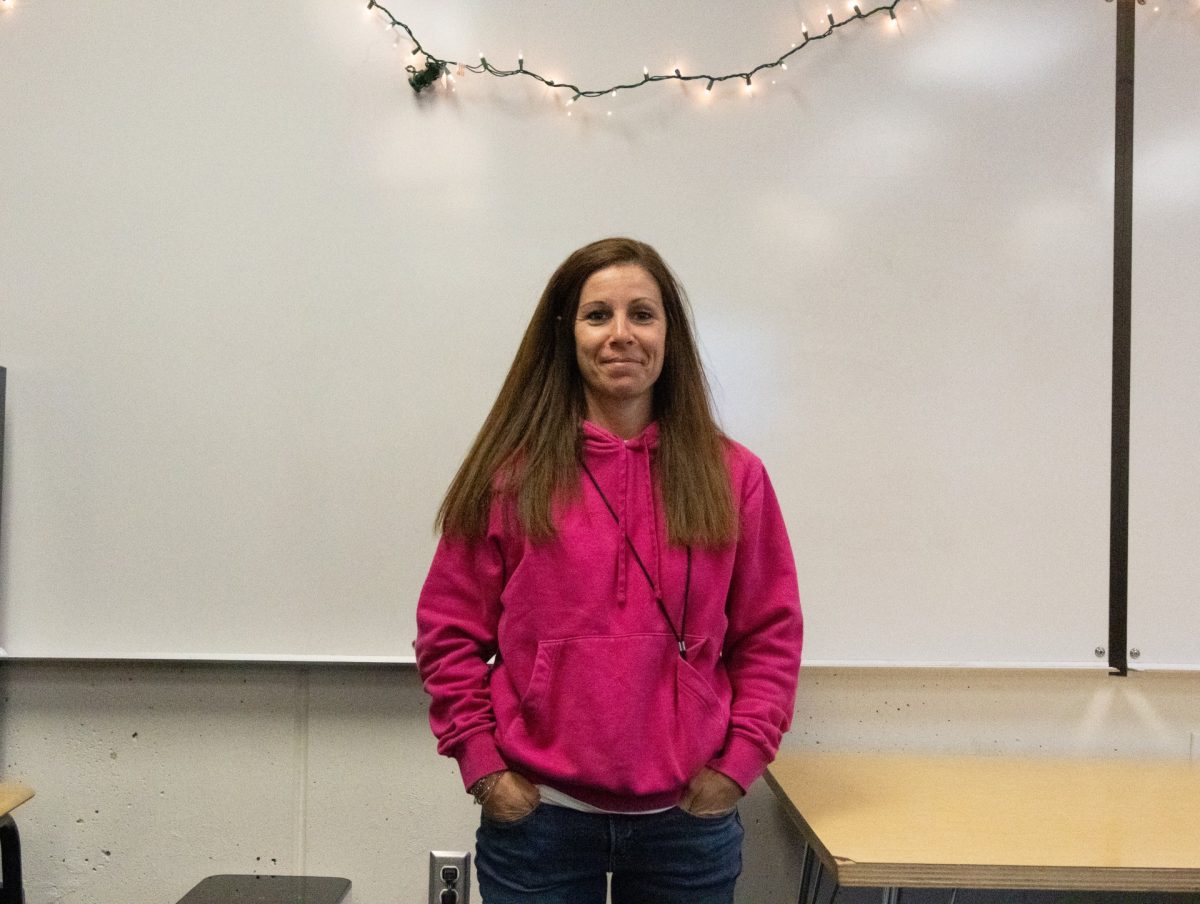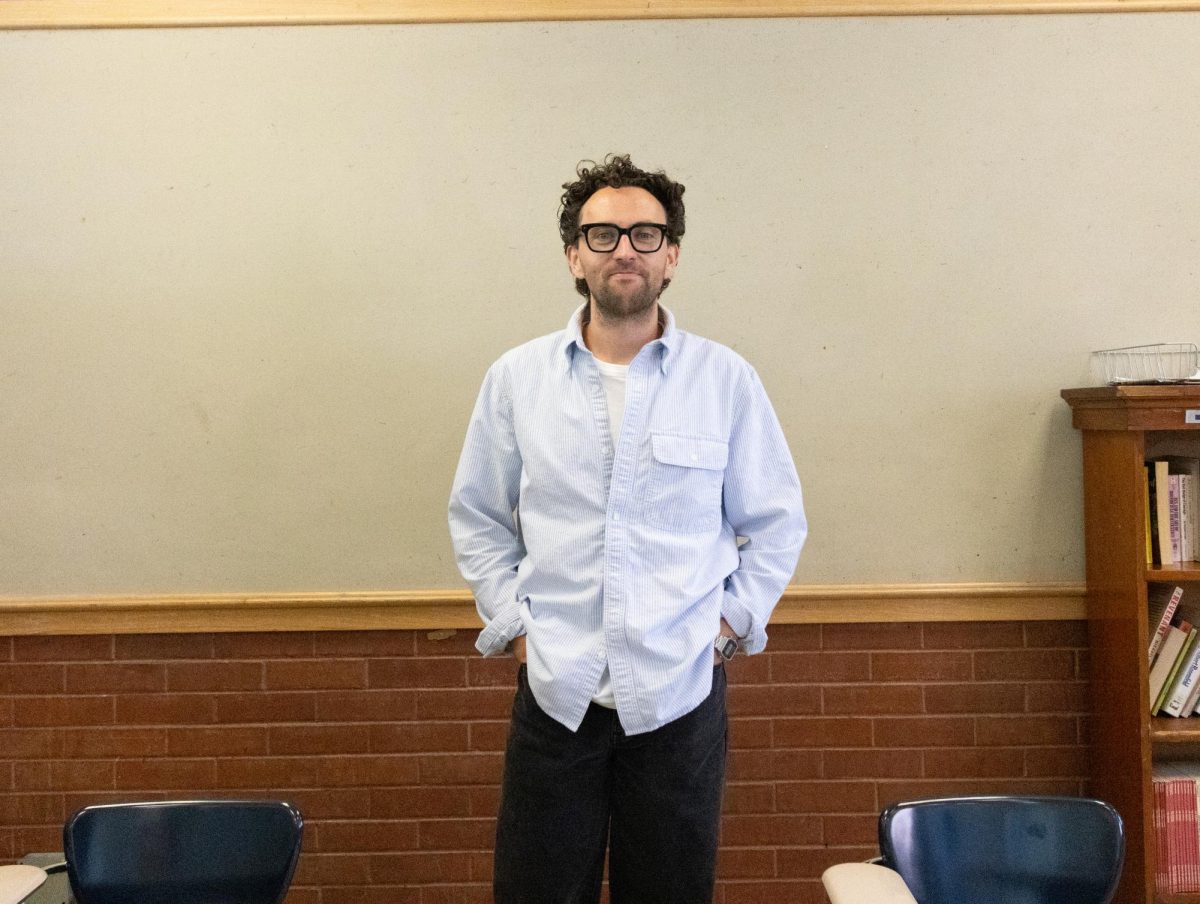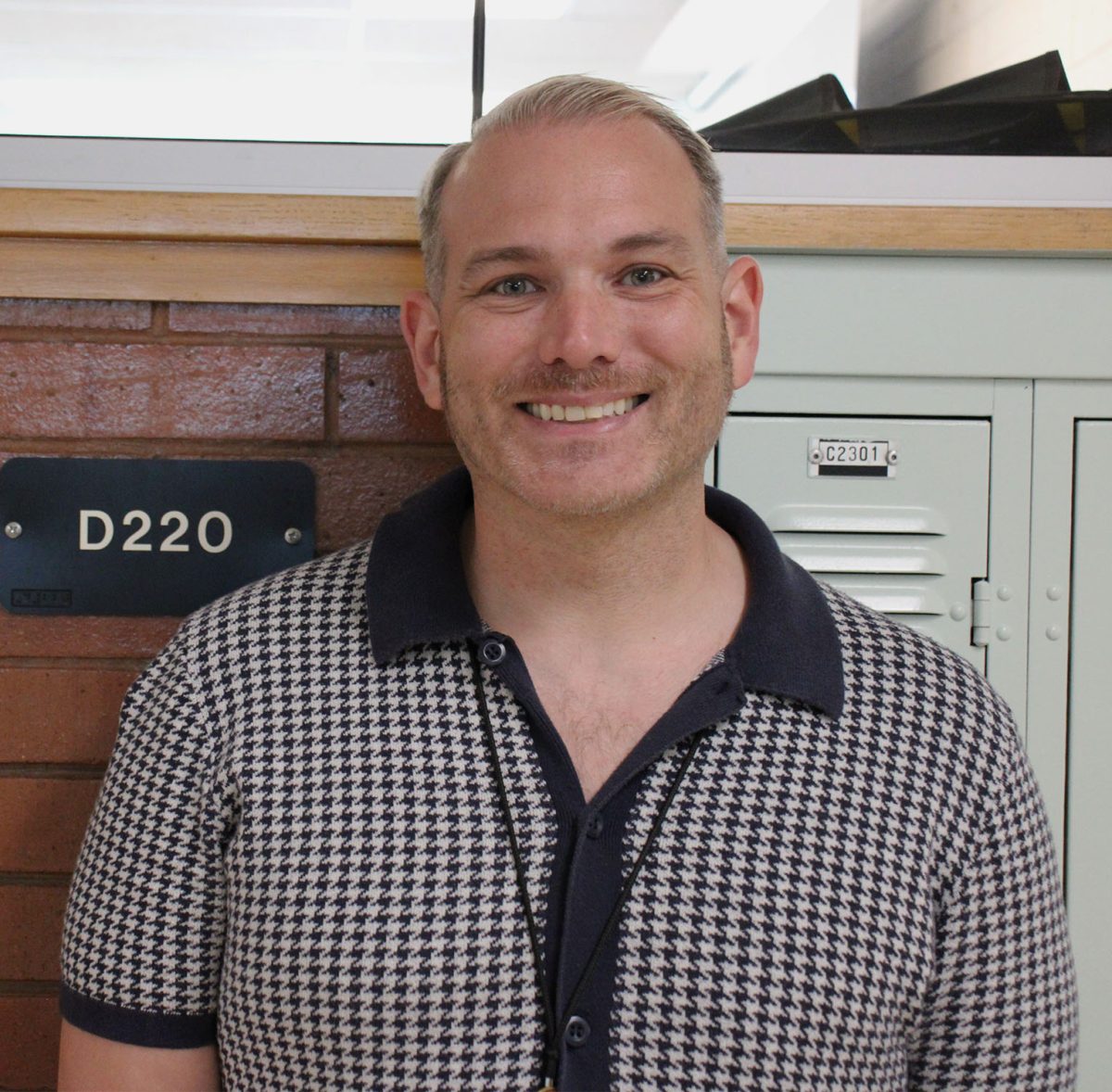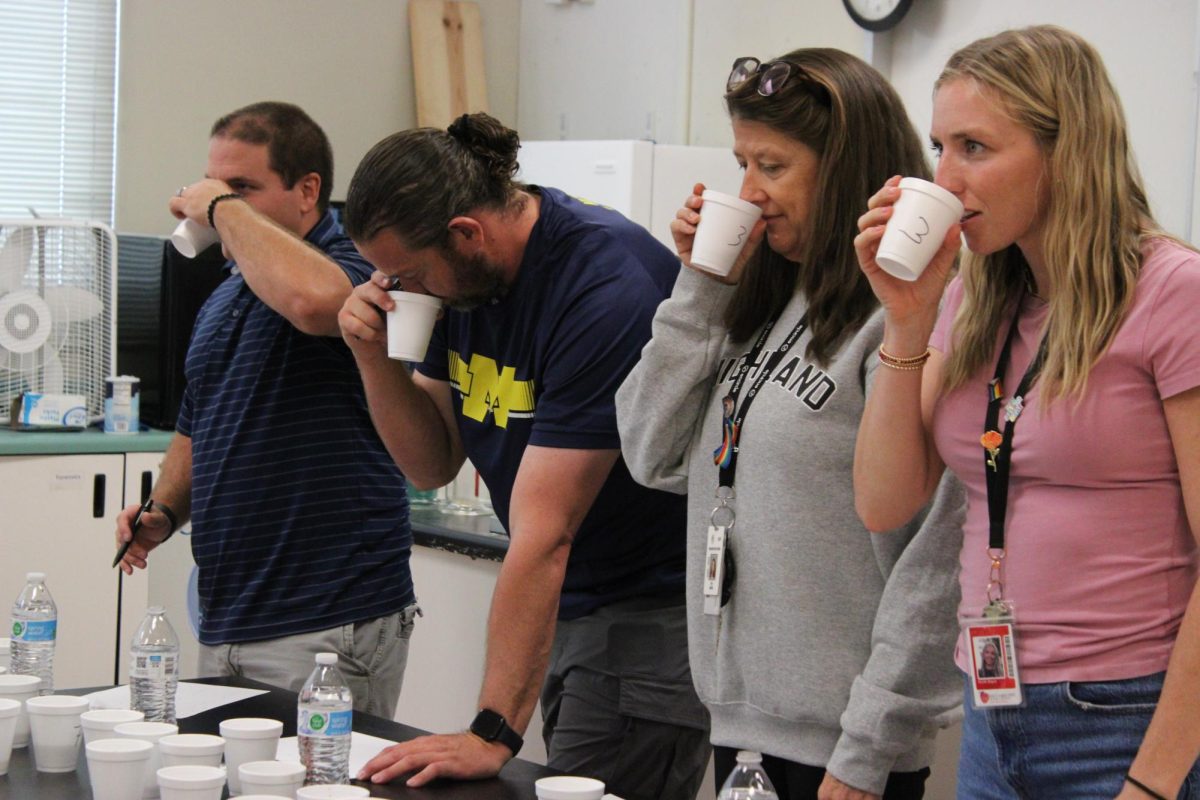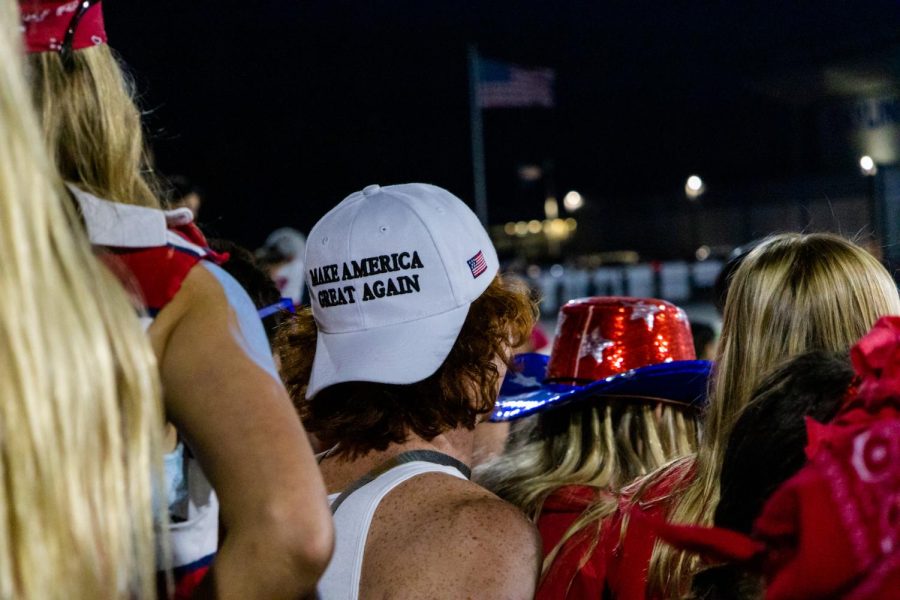Should School Play A Role In Teen Patriotism?
December 13, 2022
Before a football game, students, parents, players, and coaches experience two minutes of unity when singing the National Anthem. This harmony is interrupted moments later by the intense heckling between the opposing schools, forgetting the togetherness that was experienced at the beginning of the game.
It’s a rare time when everyone in a stadium or school can feel united, albeit for a moment. But not everyone stands for the Anthem. Many believe it has no place in schools at all.
As far as American patriotism goes, this contrast is felt constantly in school.
For example, American flags hang throughout Highland. But history classes spend hours dissecting the country’s many historical flaws. Meanwhile, students who park cars decorated with American flags often return to find those flags vandalized or stolen.
As children in elementary school, the Pledge of Allegiance was a weekly – if not daily – ritual. But in high school, the only time allegiance to America is demonstrated is in those moments before a sporting event or assembly when most fans stand at attention with hands over hearts. And even then, the participation is inconsistent.
The hesitant participation by some is not surprising, considering that younger Americans have a more unfavorable view of America than their parents and grandparents.
Pew Research Center conducted a study to prove this theory. Results came back, showing that only 10 percent of people age 18-29 thought America was a great country. This is opposite for adults 65 or older, as 10 percent from this demographic thought America isn’t close to being considered great.
Just looking at the graphs, there is an obvious and rapid decline in country appreciation in younger people.
Similar to the study conducted at Pew, the Highland Rambler conducted a survey of its own. Results drawn from that survey came back with majority of students thinking Highland is patriotic enough. Very few students felt that American patriotism was something the schools needed to promote further.
“I just don’t think there’s anything amazing about [America],” sophomore Henry Carter said.
Students had different reasoning as to why promoting America wasn’t necessary, but most of which was that America simply wasn’t a country that deserved pride. Others felt that America was overall good, but it wasn’t good enough.
“We have a lot better situation than a lot of other countries, but there’s a lot we can improve on,” freshman Hawa Jensen Augustine said.
Should schools promote patriotism? Should pride in country be a part of regular discussion? Or would this only create a greater divide in an already hostile political landscape?
Another opinion that was voiced in the Rambler’s study was that the further patriotism is pushed, the more people will be opposed to it and other patriotic students, driving students further apart from one another.
“I think if we put more emphasis on patriotism, it would really make that divide between the patriotic kids and the ‘anti’-patriotism way stronger,” junior Sophia Jeschke said.
Twice last year, two separate walkouts were organized in which large groups of students left class in protest of various issues: the first, a proposed ban on transgender boys in sports by the Utah legislature; the second, a response to the rumored Supreme Court’s reversal of Roe v. Wade.
History teacher, Matthew Shake, believes that protests are one of the best ways to be patriotic.
“To me, what is patriotic, is hearing different voices—allowing different voices to be heard,” Shake said. “I think that is super fundamental to what it is to be a democracy.”
Highland students, as well as people all over the country, were displaying their frustrations with the government, and their urges for a change. Critics of the walkouts worry that allowing such actions in school can lead students toward a belief that America is a country that shouldn’t be praised at all. This negativity scares older generations.
“We’ve been in some pretty tough places before, I think we’re in a tough place now,” Salt Lake City interim superintendent Martin Bates said.
Bates believes the role of public education is to prepare students for the real world. He believes that incorporating American pride is important.
Bates continued with imagery of an orchestra pit, comparing public educators as the conductor, who raises the orchestra to the stage. The stage, in Bates’ comparison, is the real world, where students become adults and learn what it’s like to be on their own.
“Turning society over to you is like stepping off onto the real stage,” Bates said.
Between contrasting opinions on patriotism and America, there is a lot of fear to demonstrate opinions on whether or not students should celebrate America. Backlash from other students is one of the biggest reasons students remain quiet.
“[Negativity the youth show towards America] really does [concern me], when it becomes – instead of a focus on America – a focus on politics. That is where it really gets concerning,” Highland principal Jeremy Chatterton said.
Patriotism is often mocked; students tend to associate patriotism with specific political beliefs.
Teachers have goals to make their classrooms a safe place, where opinions can be shared. Respect is one of the most important characteristics that need to be present in classrooms.
“I like to let kids hopefully get comfortable enough, as the year goes on, that they can say what they feel safely—without fear of someone retaliating against them with words,” Shake said.
Mockery can steer students to being quiet about their opinions, afraid of possible lash-outs or potential misjudgments from other students.
Overall, the youth of America have a more unfavorable view of the U.S. than any other generation. While there are many problems that need fixing, these problems tend to overtake and hide all that is good within our country to Americans—and it’s easy for students to focus on these.
Freshman Connlan McCracken believes that some blessings we have in America often go unnoticed in teenagers’ minds. While there is plenty of room for improvement, America has also come a long way and is always working towards becoming the perfect country.
“We just have an ease of life, things we don’t have to worry about, that some people I feel like don’t realize and we could appreciate a little more,” McCracken said.
Freedom of speech is one of the things America has that very few other countries have. It’s one of the things that makes America the democracy it is.
There isn’t a First Amendment anywhere other than America.
“I might really disagree with what a lot of those people say, but I’ll protect their right to say it, because I believe in that. I believe in journalism,” Bates said.
Chatterton echoed these thoughts, reminding Highland that this is America. It has areas that need fixing and amending, but it is everyone in the school’s shared country.
“Obviously being respectful of everyone’s feelings or their personal biases and not necessarily forcing anything on anyone [is something Highland needs to do],” Chatterton said. [We should still recognize] that we are part of the United States of America. It’s who we are as people.”





